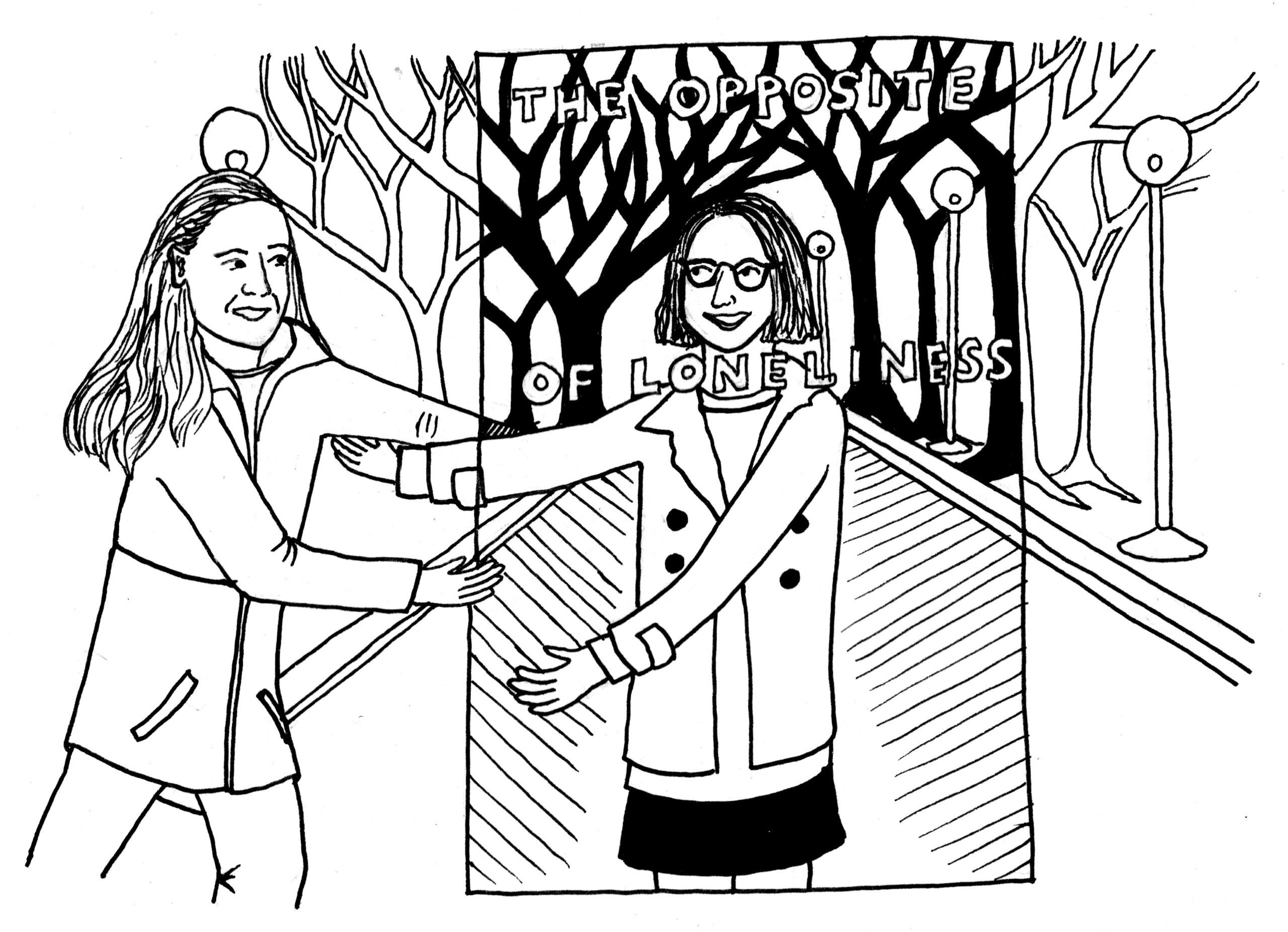From her room to mine: finding an ‘Opposite of Loneliness’ at Bowdoin
March 4, 2017
I met Harriet on the first day we got back from Pre-Orientation trips; she lived on the second floor of Maine Hall and I lived on the third floor. We were both from Brooklyn, so we talked about that, and I learned that she has a tendency to laugh while she talks, turning her sentences into word-laugh-noise mashups.
I asked Harriet for a book recommendation because she’s the illustrious president of our student body—and also my best friend. At first she couldn’t decide, and we bounced ideas across the hallway from her room to mine. And then she chose: “The Opposite of Loneliness” by Marina Keegan.
Harriet and I don’t usually read the same books, which isn’t to say that we don’t often share the same opinions. She prefers non-fiction and tells me about the ways that our stomach bacteria are influencing our lives. I adore Tock and “Phantom Tollbooth”; Harriet is disgusted by talking animals.
So, fittingly, “The Opposite of Loneliness” is half short stories and half non-fiction essays. It’s part viral sensation and part celebration of life, of really living. Marina Keegan died in a car crash in 2012, five days after graduating from Yale University, and her collection was published posthumously.
There is something strange, and terribly sad, about reading works written by someone in exactly the same stage of life that I am in right now—pre-graduation from an elite college, hoping to move on and work in a creative industry and stay happy—and knowing that the writer will always remain right where she was. Keegan talks about death, but she mostly talks about life and about love. She uses an unprecedented number of exclamation points. She is clearly brilliant.
The introduction to the book celebrates Keegan’s ability to write as a 21-year-old, to chew on the unique angst of young adulthood, the moments of being “young and uncertain and starry-eyed and frustrated and hopeful.” Keegan wrote about young graduates flocking to consulting jobs without quite knowing why. She wrote a story that is bizarrely, humorously relatable: how would you feel if the person you’d been hooking up with (but not dating!) died, and their mother asked you to speak at their funeral?
Some of the pieces in the collection (“Cold Pastoral”, “Against the Grain”) worked for me better than others did (“The Art of Observation”). But throughout I was struck—as promised—by Keegan’s dedication to her craft. She writes with a determination to share her stories, to have her voice heard.
And then there’s “The Opposite of Loneliness.” As a graduating senior, it feels almost impossible to know what to write about the titular essay in the collection, which was read by over a million people in the weeks following Keegan’s death.
“We don’t have a word for the opposite of loneliness, but if we did, I could say that’s what I want in life … It’s just this feeling that there are people, an abundance of people, who are in this together. Who are on your team,” she writes. And then, at the very end: “I’d say that’s how I feel at Yale … And we don’t have to lose that.”
While reading “The Opposite of Loneliness,” I inevitably thought about my time at Bowdoin. But I also thought about Harriet. I felt the poetry of her choosing this book, not just as a collection that deeply impacted her, but as something she wanted me to read. Because Harriet is my opposite of loneliness. And we don’t have to lose that.


Comments
Before submitting a comment, please review our comment policy. Some key points from the policy: